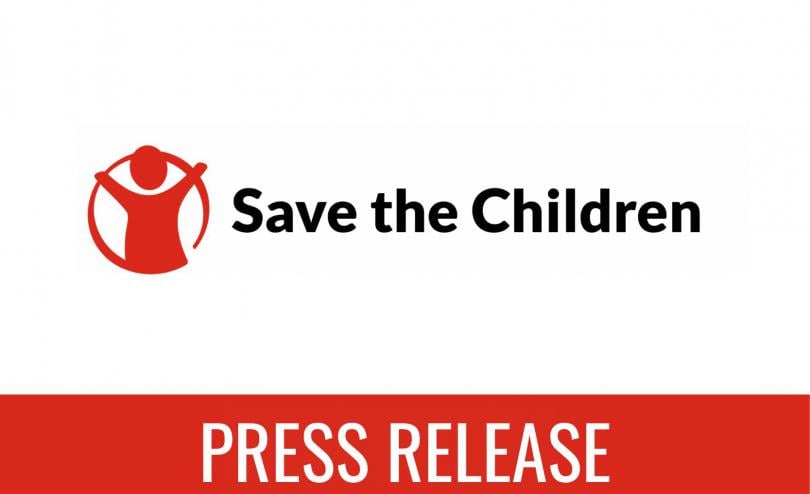International Day to End Corporal Punishment: Only 14% of world’s children legally protected from corporal punishment

GENEVA – 28th April 2023 - Only one in seven children globally are protected by laws against corporal punishment, which is the most common form of violence against children ranging from smacking to more extreme abuse, according to Save the Children.
Despite moves in recent years to outlaw such violence, only 65 countries from a total of about 199 currently ban all forms of corporal punishment, including in the home.
Ahead of International Day to End Corporal Punishment on Sunday, Save the Children calls for the universal elimination of all forms of corporal punishment by 2030, to meet one of the targets of the United Nations’ Sustainable Development Goals agreed in 2015.
Corporal punishment is the physical and humiliating punishment of children at the hands of parents, teachers and caregivers. Every year, thousands of children die as the result of corporal punishment, and many more are seriously injured.
Many forms of corporal punishment would be considered torture if they were carried out on adults. It can include the threat of violence, smacking, but can also involve kicking, shaking, burning, and forcing children to stay in uncomfortable positions. It also includes humiliating treatment which belittles the child.
Zambia was one of the most recent countries to ban corporal punishment in all settings of children’s lives, with legislation last November providing nearly 9 million children with legal protection from violent punishment.
Raisa, 16, from Zambia, said:
“You can't teach children to behave better by making them feel worse. The beating from teachers in order to maintain discipline is not necessary, it may actually cause trauma and lessen the child's participation in school activities. Let's break the chain of corporal punishment.”
Jo Musonda, Save the Children Country Director in Zambia, said:
“Banning corporal punishment is an important step. It sends a clear message that violence against children will not be tolerated, but the hard work has only just begun. The new law needs to be explained, enforced and closely monitored. We are working with leaders, communities and teachers, to challenge entrenched thinking and behaviours, and promote parenting without violence.”
Nepal prohibited corporal punishment in all settings in 2018and Save the Children is working with communities to explain the changes to the law and monitor its enforcement.
Ashmita, a 13-year-old child campaigner with Save the Children Nepal, said:
“Starting in our families, parents should not abuse their children. We raise awareness through street dramas and posters, for the sake of children who are suffering. Nobody should commit violence against children.”
Physical and humiliating punishment affects a child’s brain development and their emotional wellbeing, which can lead to long term mental health issues. There’s overwhelming evidence that corporal punishment leads to increased anti-social behaviors and aggression, which can carry on into adulthood, at great cost to society.
Save the Children successfully lobbied for legislative change in Pakistan, leading to a ban on corporal punishment in education settings in Sindh (2017) and Islamabad, the Federal Territory (2021). Even after the ban, cases of children being badly beaten in schools are still being reported. Laws around education are managed at the provincial level in Pakistan. There are still two provinces without any laws prohibiting corporal punishment. Muhammad Khuram Gondal, Country Director, Save the Children in Pakistan said:
“We continue to campaign for legislative change across Pakistan, in order to protect children from appalling abuse. Children tell us that they don’t want to go to school anymore, due to physical beatings and humiliating treatment. Corporal punishment can have a devastating impact on children’s education, as it’s common for beaten children to drop out of school altogether.”
There are 134* countries where children don’t have full legal protection from corporal punishment. Save the Children continues to campaign for much needed change, in countries like the Philippines, which is currently advocating for the passage of the Positive Parenting Bill.
Simbiat*, a 19-year-old mother who is one of Save the Children Philippines’ campaigners, said:
“Because of what I have experienced, I help advocate ending violence against children and the abuse of girls, by showing other children that we have rights, and we can get involved. I want to help raise awareness on the issue and let children know that they can live happily.”
Steve Miller, Global Child Protection Director, Save the Children International, said:
“Children around the world have a right to legal protection from corporal punishment, in the family home and all other settings of their lives. This human right is recognised under international treaties, including the Convention on the Rights of the Child, yet many countries fail to prohibit corporal punishment. All countries must respect children’s rights and ban all forms of corporal punishment.”
ENDS
Notes
*name changed
* 134 countries where children don’t have full legal protection from corporal punishment, is based on all forms of corporal punishment being banned in 65 countries, in the remaining 134 countries, children don’t have full legal protection.
For further enquiries please contact:
- Ruby Wright, GMU media manager: ruby.wright@savethechildren.org
- Diana Oberoi, Interim Asia Regional Media Manager: doberoi@savechildren.org
- Delfhin Mugo, Regional Media ManagerEast and Southern Africa Delfhin.Mugo@savethechildren.org
- Global Media Unit: GMU@savethechildren.org
Our media out of hours (BST) contact is media@savethechildren.org.uk / +44(0)7831 650409
Please also check our Twitter account @Save_GlobalNews for news alerts, quotes, statements and location Vlogs.
Ruby Wright l Media Manager
Email: ruby.wright@savethechildren.org
Phone/Whatsapp: +44 (0) 7969983222
Our media out of hours (BST) contact is media@savethechildren.org.uk / +44(0)7831 650409
Twitter: @save_globalnews www.savethechildren.net




